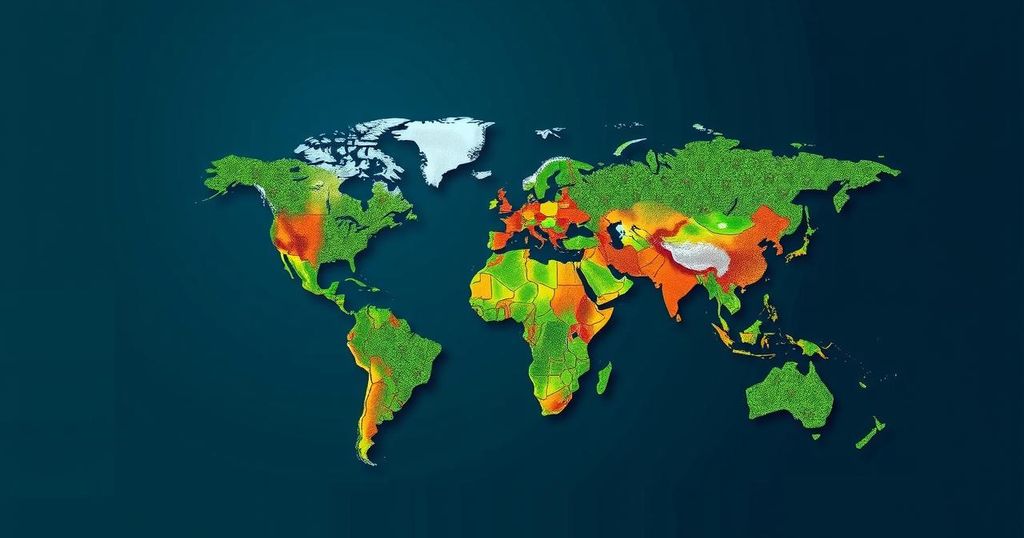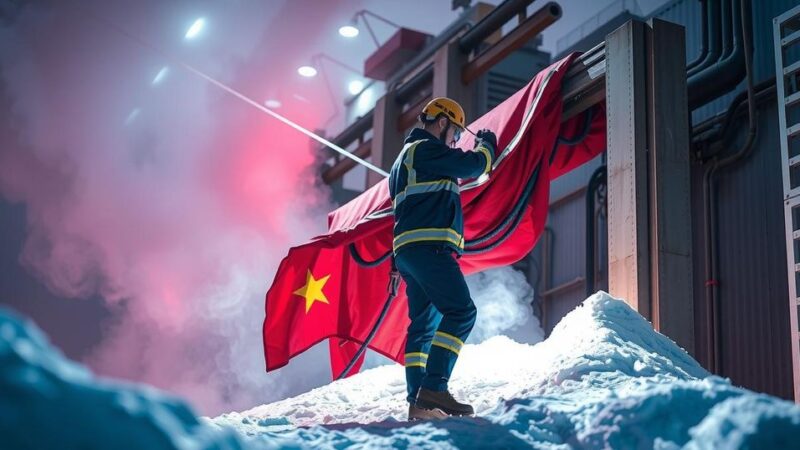The World Meteorological Organization reports rising greenhouse gas levels due to severe wildfires and carbon emissions, emphasizing their historical significance and the urgency ahead of the U.N. climate negotiations. Current carbon dioxide levels are soaring, with potential environmental feedback loops worsening the situation, necessitating immediate global action.
As severe wildfires contribute to the escalating levels of greenhouse gases in the atmosphere, the United Nations weather agency has underscored the urgency for action ahead of the upcoming international climate negotiations. The most recent data from the World Meteorological Organization (WMO) reveals that the concentration of carbon dioxide in the atmosphere has reached levels reminiscent of two to three million years ago, a period when temperatures were significantly warmer and sea levels considerably higher. According to the WMO’s annual Greenhouse Gas Bulletin, emissions of carbon dioxide, particularly from fossil fuels and cement production, are exceeding the Earth’s capacity to absorb these gases through oceans and forests. This accumulation of unabsorbed carbon dioxide perpetuates the greenhouse effect, driving global warming. In a statement, Ko Barrett, the deputy secretary-general of the WMO, emphasized, “These are more than just statistics. Every fraction of a degree of temperature increase matters.” She highlighted how minute changes in temperature can affect glacier retreat, the acceleration of sea-level rise, and the increase in extreme weather events. Additionally, she warned of potential ramifications for ecosystems and economies worldwide. The forthcoming 29th U.N. climate negotiations will be hosted by Azerbaijan, a country noted for its authoritarian governance and heavy dependence on fossil fuel exports. As nations prepare for these discussions, the dire implications of climate inaction loom large. Since the historic 2015 climate agreements aimed at limiting global temperature rise to 1.5 degrees Celsius above preindustrial levels, scientific evidence suggests that continued fossil fuel dependence guarantees further warming. Currently, global temperatures have risen approximately 1.2 degrees Celsius, while sea levels have risen by about 24 centimeters since 1880. The WMO also reported that Canada witnessed its worst wildfires, exacerbating already high carbon emissions stemming from human activities. As the world transitions away from the La Nina phenomenon into warmer conditions of El Nino, a reduction in the carbon dioxide absorbed by forests may occur, as plants generally absorb less carbon at elevated temperatures. The WMO reveals that global averaged carbon dioxide concentration reached 420 parts per million in 2023, marking the twelfth consecutive year of an increase exceeding two parts per million. This rate of accumulation is unprecedented in human history. The organization warns that exacerbating climate feedback loops could lead to a scenario where the environment itself contributes more greenhouse gases, with wildfires and warmer oceans potentially releasing more carbon and absorbing less. The pressing climate feedback effects outlined by the WMO signal critical challenges that society must address as part of maintaining sustainable development and mitigating climate change.
The topic revolves around the alarming rise in greenhouse gas emissions, particularly carbon dioxide, largely attributed to human activities such as fossil fuel combustion and industrial processes. The WMO’s observations emphasize the correlation between these emissions and their impact on global warming, highlighting the cyclical nature of climate change, where increasing temperatures may lead to natural processes that further exacerbate greenhouse gas levels. This context provides essential background leading into the discussions anticipated at the upcoming U.N. climate talks, where the goal is to mobilize global efforts to curb these emissions and mitigate their impacts.
In summary, the WMO’s findings illuminate the critical state of global greenhouse gas emissions and their implications for future climate conditions. The increasing levels of carbon dioxide, heightened by factors such as wildfires and changing climatic patterns, necessitate immediate collective action at the forthcoming U.N. climate negotiations. The consequences of inaction are profound, affecting not only environmental stability but also social and economic well-being worldwide. The urgency to transform our reliance on fossil fuels into sustainable practices has never been more apparent.
Original Source: www.benarnews.org







